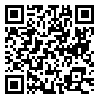Volume 8, Issue 3 And 4 (7 2010)
jhosp 2010, 8(3 And 4): 57-67 |
Back to browse issues page
Download citation:
BibTeX | RIS | EndNote | Medlars | ProCite | Reference Manager | RefWorks
Send citation to:



BibTeX | RIS | EndNote | Medlars | ProCite | Reference Manager | RefWorks
Send citation to:
Emami H. Key Success Factors in E-Learning and Preparation exact departments in Medical Education. jhosp 2010; 8 (3 and 4) :57-67
URL: http://jhosp.tums.ac.ir/article-1-99-en.html
URL: http://jhosp.tums.ac.ir/article-1-99-en.html
Abstract: (14505 Views)
Background: As in many countries, Medical Education (ME) is offered in three levels including Undergraduate ME, Graduate ME, and Continuing ME. Information theology development has provided a suitable chance for ME. E-learning in ME is growing more and more. The present study seeks to determine the key success factors (KSF) in E-learning in medical fields.
Material and Methods: KSF has been scrutinized in the literature following of which, and due to similarity, a classification with seven groupings was established including institutional factor, technology, interested parties, information knowledge, methods and approaches educational resources, and environmental factors. Through a questionnaire, the data were gathered from the information technology (IT) directors in all medical universities throughout the country. The data collected were subjected to factorial analysis. Data from heads of educational groups were obtained through focus group discussion. Cronbach reliability coefficient was calculated for questionnaire used. Factorial analysis was used to identify meaningful KSF. T-Test, and one-way variance analysis as well as Pearson's correlation were used. The analysis was conducted with SPSS software.
Results: The preparedness factors were analyzed through group discussions with the heads of the academic departments under the study. By factorial analyses, five factors were found. Fisher Exeact Test was used to compare the obtained ratios in 5% curve whose results showed that among the three factors including legal and technical environment, specialized hardware and software, and high speed internet, performance interest and potentials showed a significant difference (p=0.002). A p=0.011 was found for the authorities' interest and financial and non-financial rewards. No other significant differences were found anywhere else.
Conclusion: Appropriate strategies to coordinate and aligned with the conditions that must be taken, including some of them can be cited : Document Perspective drawn by the Ministry of Health, Content production (medical, etc.) to the appropriate shape, Develop technical and communications infrastructure, First e-learning development in the field of basic science And then as a complementary training in Clinical Science, Develop and build information literacy skills among teachers and students And encourage them in this area, Platforms and create the appropriate structures and interactions necessary, Despite the virtual library, Drawing rules for the protection of creators and owners of content rights education, Culture correct and appropriate, Private sector participation in developing e-learning and ..so on
Material and Methods: KSF has been scrutinized in the literature following of which, and due to similarity, a classification with seven groupings was established including institutional factor, technology, interested parties, information knowledge, methods and approaches educational resources, and environmental factors. Through a questionnaire, the data were gathered from the information technology (IT) directors in all medical universities throughout the country. The data collected were subjected to factorial analysis. Data from heads of educational groups were obtained through focus group discussion. Cronbach reliability coefficient was calculated for questionnaire used. Factorial analysis was used to identify meaningful KSF. T-Test, and one-way variance analysis as well as Pearson's correlation were used. The analysis was conducted with SPSS software.
Results: The preparedness factors were analyzed through group discussions with the heads of the academic departments under the study. By factorial analyses, five factors were found. Fisher Exeact Test was used to compare the obtained ratios in 5% curve whose results showed that among the three factors including legal and technical environment, specialized hardware and software, and high speed internet, performance interest and potentials showed a significant difference (p=0.002). A p=0.011 was found for the authorities' interest and financial and non-financial rewards. No other significant differences were found anywhere else.
Conclusion: Appropriate strategies to coordinate and aligned with the conditions that must be taken, including some of them can be cited : Document Perspective drawn by the Ministry of Health, Content production (medical, etc.) to the appropriate shape, Develop technical and communications infrastructure, First e-learning development in the field of basic science And then as a complementary training in Clinical Science, Develop and build information literacy skills among teachers and students And encourage them in this area, Platforms and create the appropriate structures and interactions necessary, Despite the virtual library, Drawing rules for the protection of creators and owners of content rights education, Culture correct and appropriate, Private sector participation in developing e-learning and ..so on
Received: 2010/04/28 | Accepted: 2010/06/30 | Published: 2013/08/6
| Rights and permissions | |
 |
This work is licensed under a Creative Commons Attribution-NonCommercial 4.0 International License. |





